Psychology > PROJECT FINAL > PSYC-290N Week 2 Course Project I: My Virtual Life – Raise A Child: Section 1-Infancy: 8 to 30 mon (All)
PSYC-290N Week 2 Course Project I: My Virtual Life – Raise A Child: Section 1-Infancy: 8 to 30 months
Document Content and Description Below
infancy: 8 months to 30 months Set 1: 8 months 1. How does your baby’s eating, sleeping, and motor development compare to typical developmental patterns? My baby, Nora, has been a little fussy af... ter feedings but as long as she’s burped, she tends to go back to her normal self. She is sleeping a little less than what might be normal because she has a ton of energy and since she has a strong attachment to mom, I'm usually the one she wants when she needs to be put to sleep. She is advanced in her motor development skills and she has a preference playing with people rather than her baby toys. 2. At 8 months of age, was your child an easy, slow to warm up, or difficult baby in terms of Thomas and Chess’s classic temperamental categories? On what do you base this Judgment? I would say at this point Nora is mostly an easy child. She is for the most part in a positive and happy mood. She enjoys playing with people and although she is shy to strangers, she will warm up to them over time. She also adapts fairly well to new experiences. 3. How is your child’s attachment relationship to you and your partner developing? What is happening at the 3-month and 8-month periods that might affect attachment security according to Bowlby and Ainsworth and various research studies? At this point Nora has a strong attachment to me. She finds it comforting to be with mom and if she is frustrated or in a bad mood I can usually get her back to her happy self by picking her up and interacting with her. I do feel it is important for her relationship with dad to be just as strong so I'm encouraging him to participate in feedings, diaper changes, bathing and play time. Set 2: 19 months 1. Describe examples of changes in your child’s exploratory or problem-solving behavior from 8 through 18 months and categorize them according to Piagetian and information processing theories. When Nora was younger, she was a bit shy to explore her surroundings if I was not nearby since the two of us had a strong connection and she was most comfortable around me. However, once we noticed this, we began to get dad more involved with daily activities and now she is not so reliant on me. This made her exploratory skills improve as she is more comfortable venturing out without me. As for Nora’s problem-solving skills, she is advanced with her gross motor skills and was on track with skills like building block towers or coloring. She is lagging a little bit behind with her communication skills. It was recommended that we have more conversations with her, even if they are one sided, and try to encourage her to say small words. 2. Analyze your baby’s temperament in more detail at 19 months than you did at 8 months. How would you describe your baby in terms of the five aspects of temperament utilized by the Virtual Childprogram (activity, sociability, emotionality, aggressiveness vs. cooperativeness, and self control)? Has your child’s temperament been stable over the first 18 months? A blurb defining and providing examples of the five aspects of temperament is provided at 12 months, but you should seek out further explanations of temperament from your textbook. Explain how the concept of goodness of fit (also discussed in the blurb on infant temperament) applies to your interactions with your child. Nora’s temperament has been stable over the last 18 months. She has a strong emotional connection with mom and dad but is very social with other kids her age and is interested by them. She does get a little bit frustrated if she doesn’t get what she wants but will quickly calm down. She is learning more and more words and since she was a bit behind with her communication skills, we are working on teaching her how to follow short tasks. 3. Were you surprised by anything in the developmental assessment at 19 months? That is, does your perception of your child’s physical, cognitive, language and emotional development differ from that of the developmental examiner? Give specific examples. If you were not surprised, write instead about some aspects of your child’s behavior that need the most work. I was glad to hear that Nora was doing really well and was on track with the majority of the developmental categories. Nora even began making attempts to walk when she was 9 months. Which is on the early end for when babies begin to walk. However, I was a bit surprised the hear that Nora was a little behind with her communication skills. I think it is very important to have conversations with little ones even if they don’t understand what you’re saying or if they can’t talk back yet. Moving forward I will make doing these things a priority so that she can catch up and hopefully master communication skills. Set 3: 30 months 1. Have there been any environmental events in your child’s first 2 1/2 years that you think might have influenced his or her behavior? On what do you base your hypotheses? Nora is beginning a new preschool program. The new program has a new teacher and a whole new set of children. Because of the new environment she is hesitant about letting mom and dad leave, as she doesn’t know what to think about these new people quite yet. However, she is relativley quick to warm up to them and enjoys the time she spends at preschool. 2. How is your child progressing on typical toddler issues, such as learning household rules, learning to follow routines, listening to you, developing self-control and learning to get along with other children? Nora does a really good job getting along with other kids. Sometimes she will get upset when she has to share her toys but overall she does a good job understanding how to play nicely. She mastered potty training around 2 ½ years old. Which is right around the time when most other kids do as well. She is still lagging a little bit behind is terms of communication skills. She knows how to say short phrases but hasn’t yet grapsed the idea of following directions when given. To help Nora reach this milestone I plan to keep having conversations with her and explaining how things work and I'm confident she will quickly catch up with the other children her age. 3. Analyze your own parenting philosophy and practices. What principles from social learning theory, Bowlby, Ainsworth, Piaget, Vygotsky, information processing theory, developmental neuroscience and other theories do you appear to have relied on in making your parenting choices or interpreting your child’s behavior? Include three principles/theorists from the above list in your answer Bowlby believes that infants that fail to form a close relationship with a caregiver before the age of 2 are at risk for future social and personality problems. I think that it is very important for a child to form tight bonds with their caregivers early on because these adults are their “safe place”. They look to these adults as role models and put all their trust into them. If a child does not have a positive role model in their lives, they may come up short with their milestones and may have difficulty catching up if no one is there to help guide them. Vygotsky’s theory he called scaffolding relates closely as well. His idea of scaffolding states that “To create an appropriate scaffold, the adult must gain and keep the child’s attention, model the best strategy, and adapt the whole process to the child’s developmental level, or zone of proximal development” (Boyd 2019). The example that was given in the book was when a child is learning how to read sometimes a caregiver has to step in and help sound out a difficult word. I think it is important to let the child attempt to problem solve on their own at first before a caregiver steps in for help. Reference Boyd, Denise Roberts, and Helen L. Bee. Lifespan Development. Pearson, 2019 [Show More]
Last updated: 10 months ago
Preview 1 out of 3 pages

Reviews( 0 )
Document information
Connected school, study & course
About the document
Uploaded On
Jun 08, 2023
Number of pages
3
Written in
Additional information
This document has been written for:
Uploaded
Jun 08, 2023
Downloads
0
Views
54


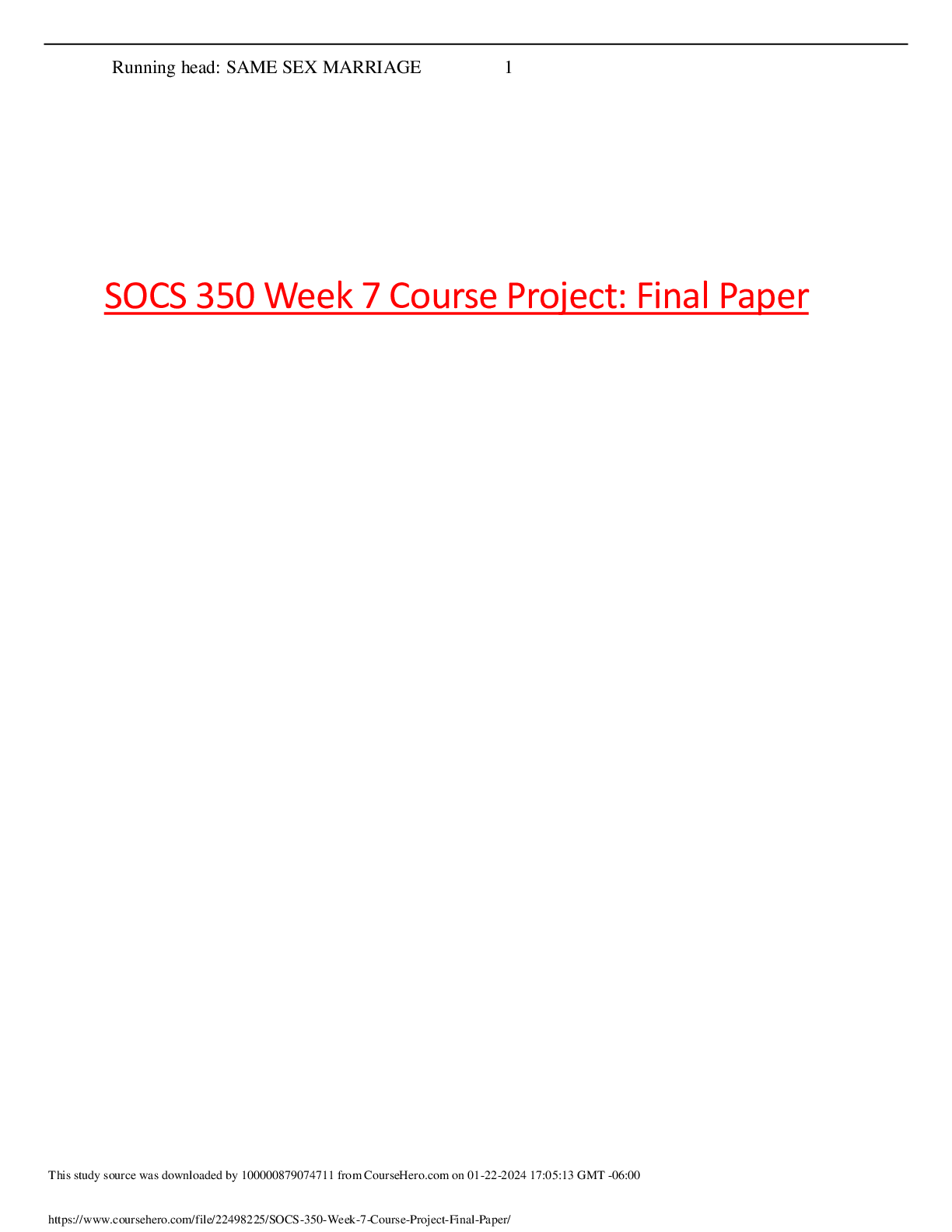
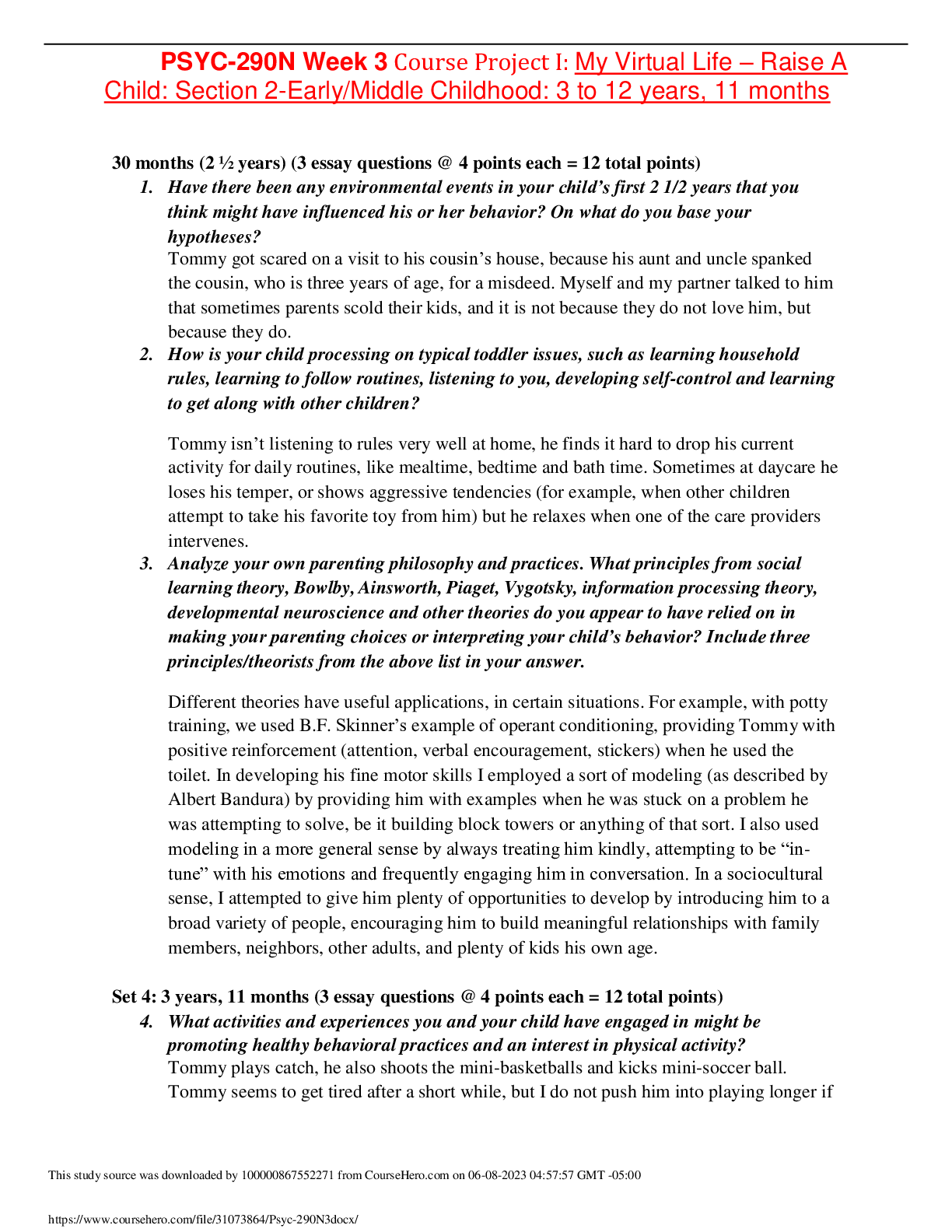
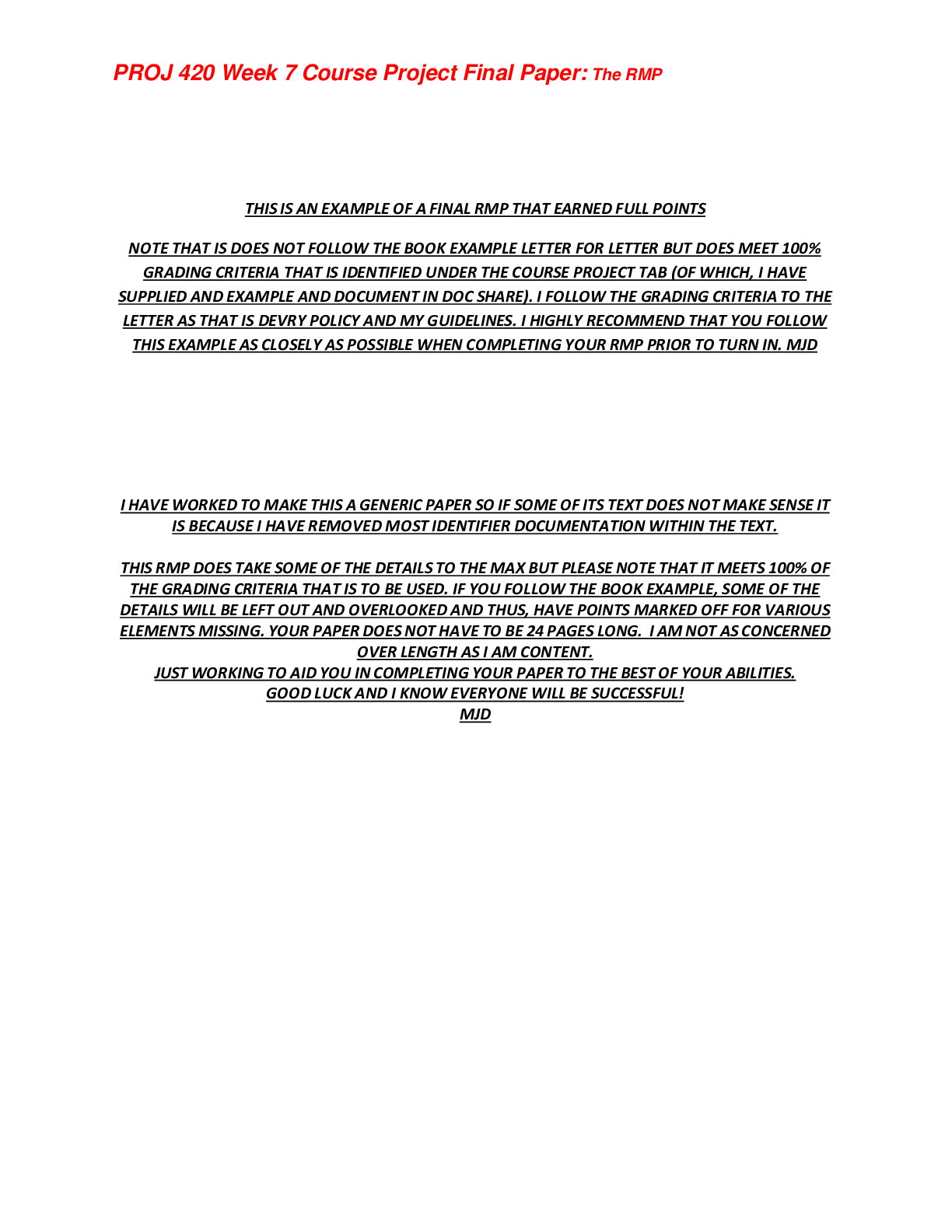


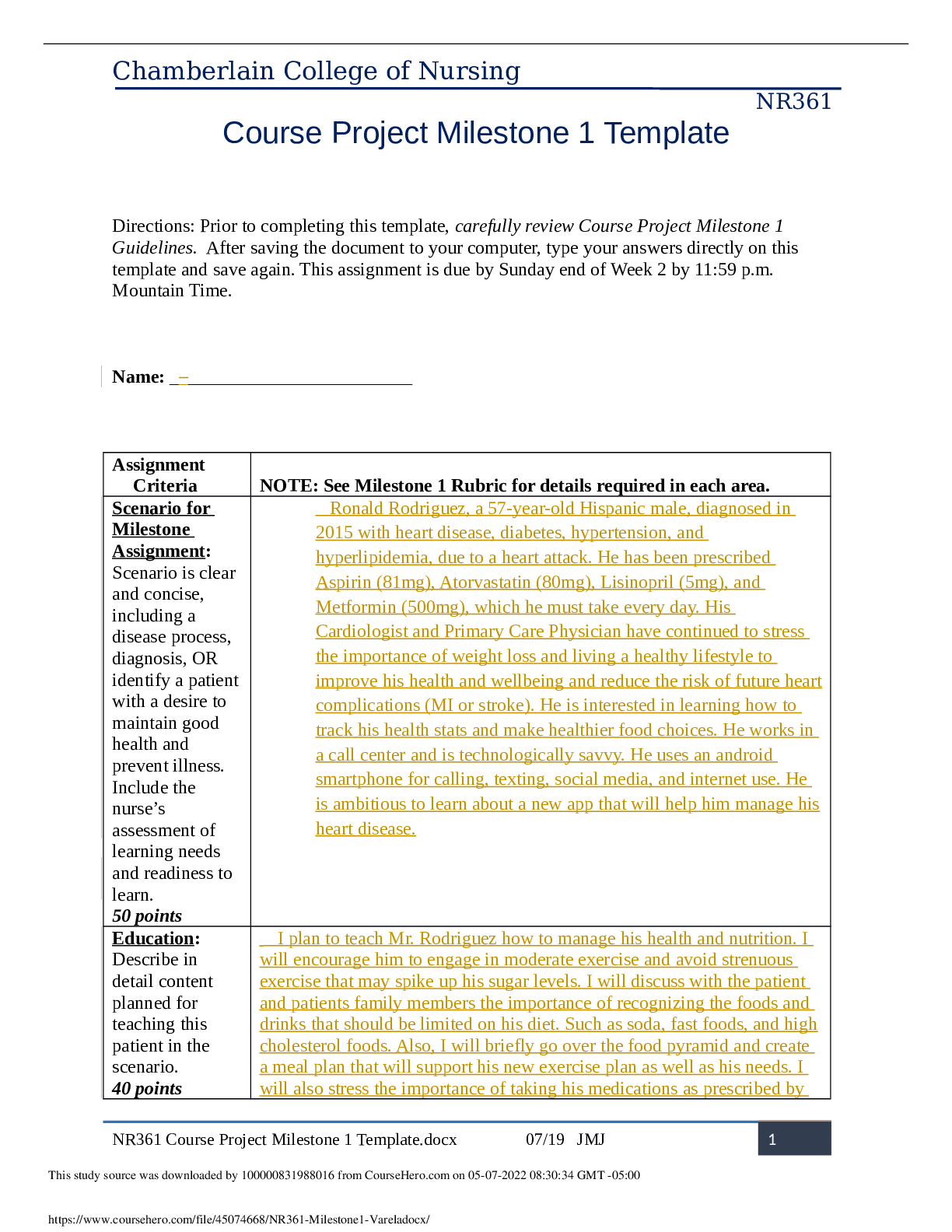


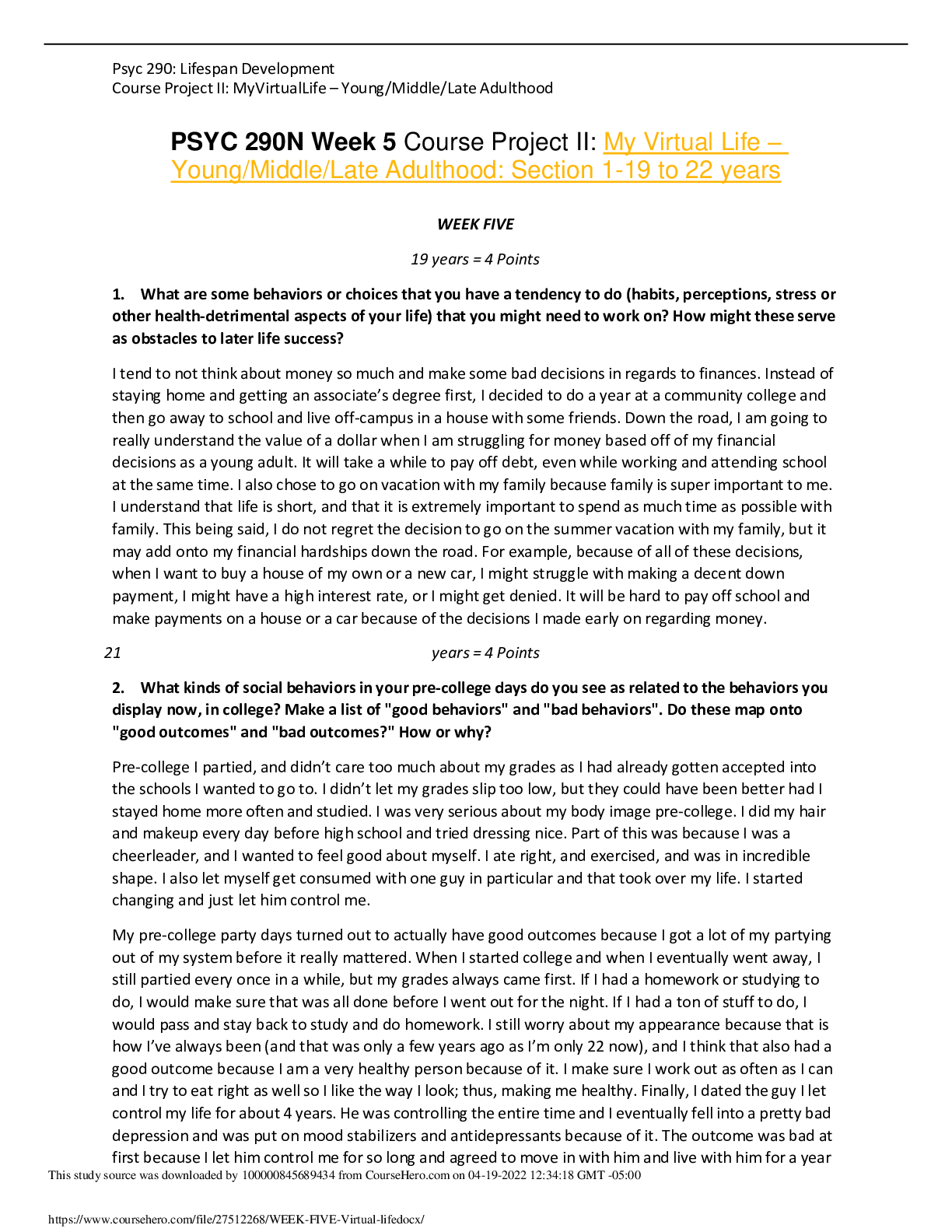
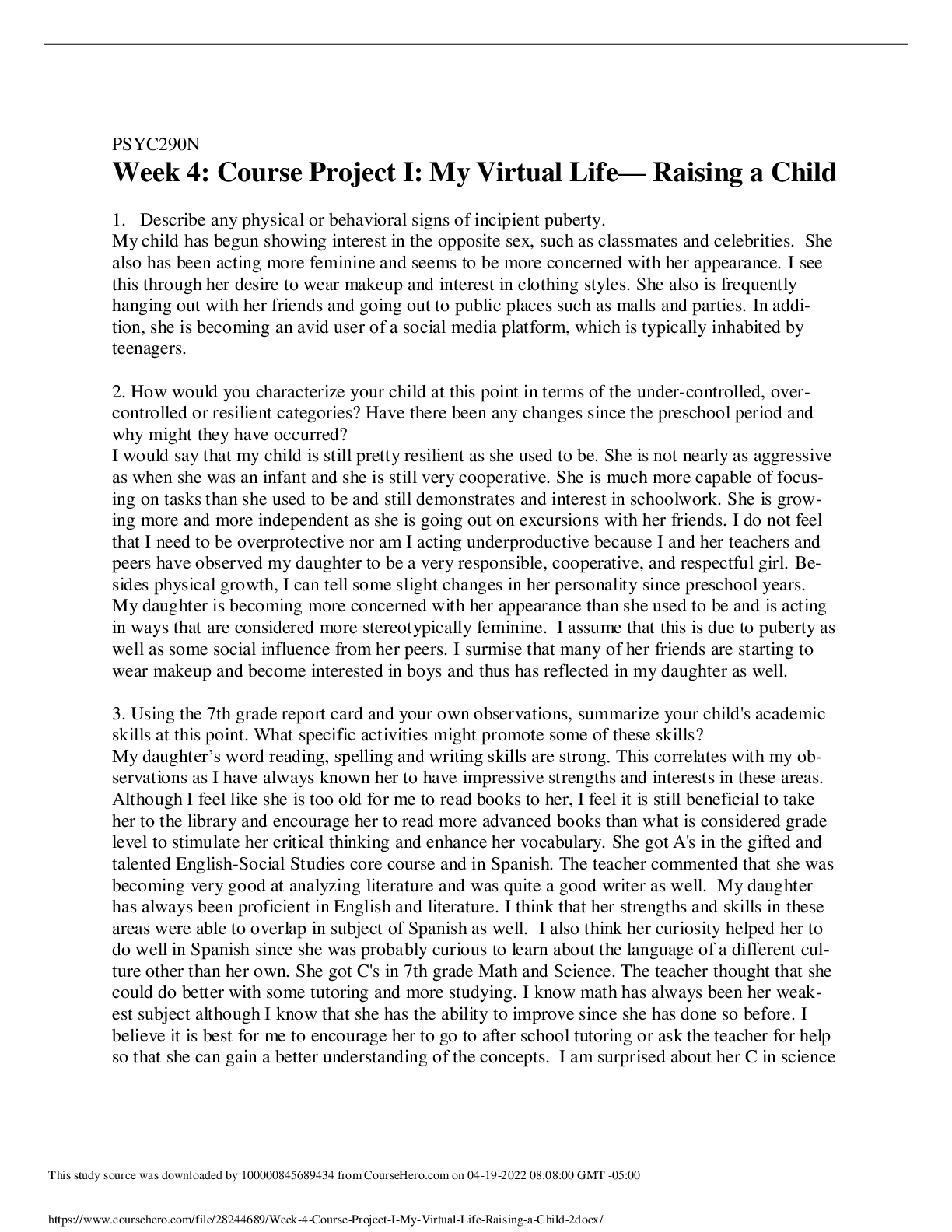
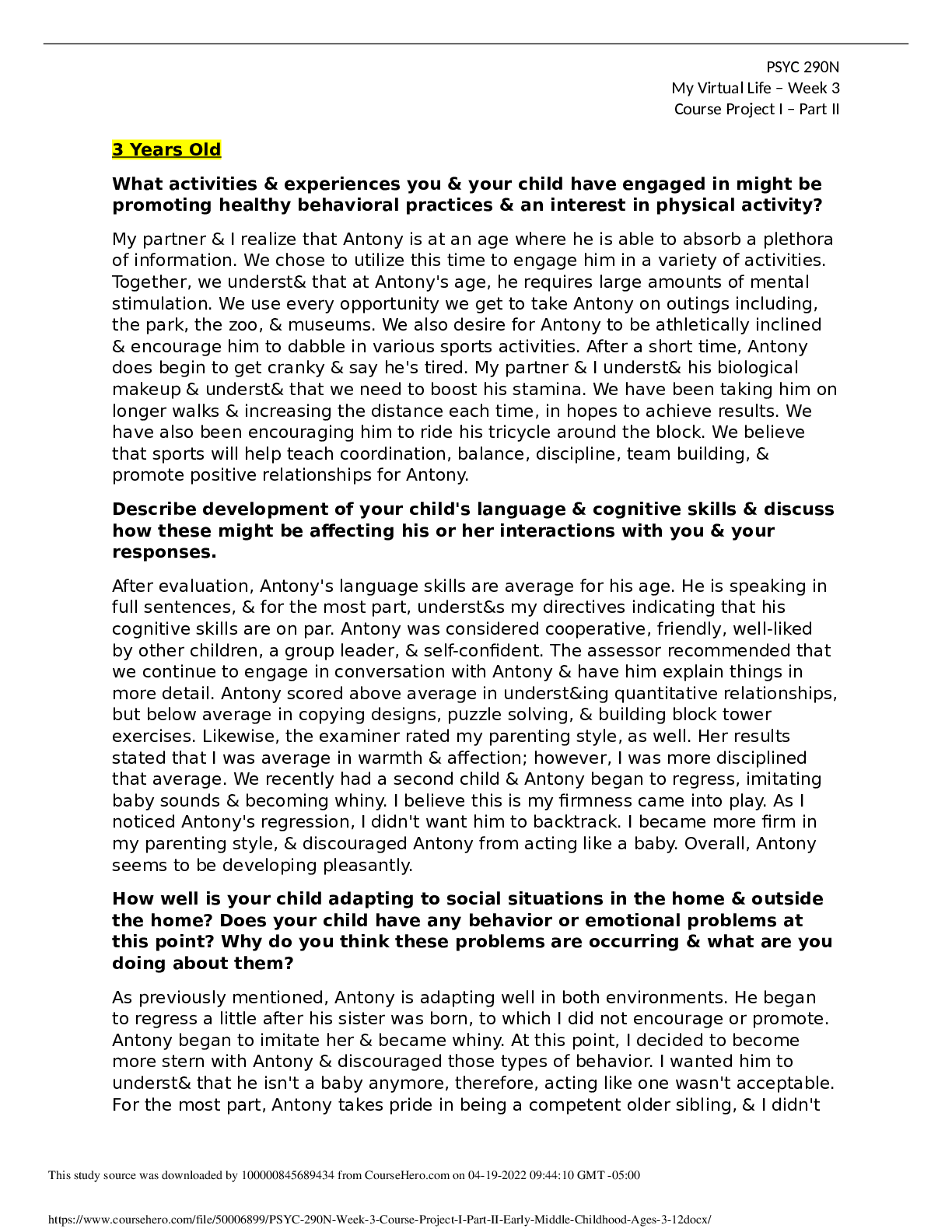
 (1).png)


.png)
.png)






